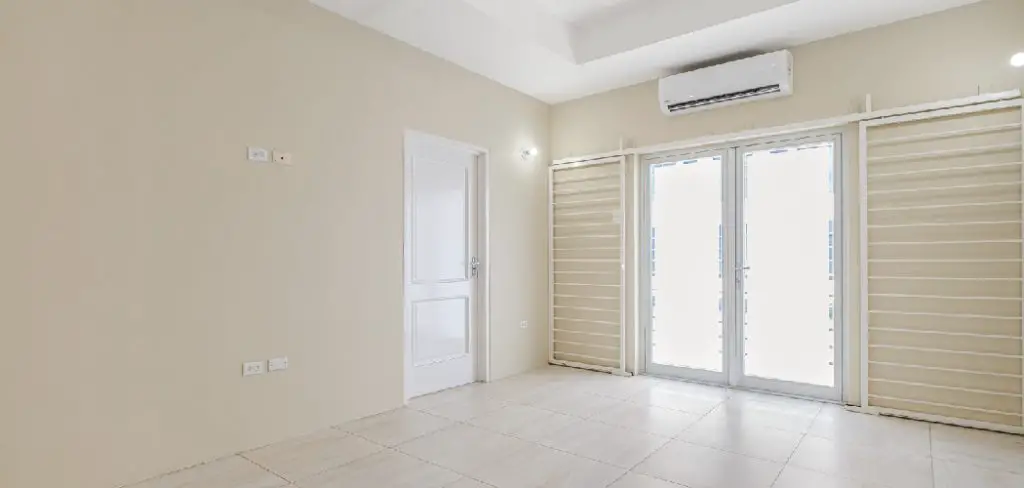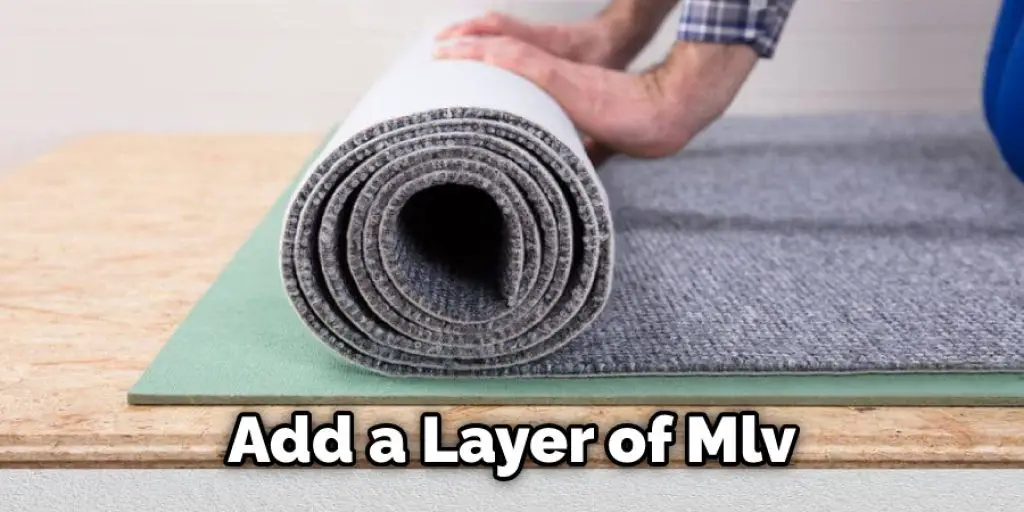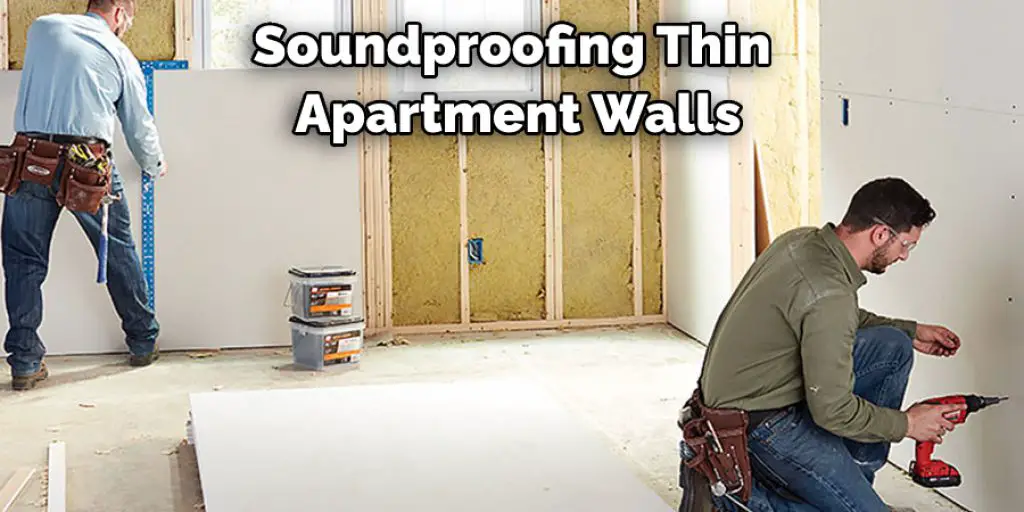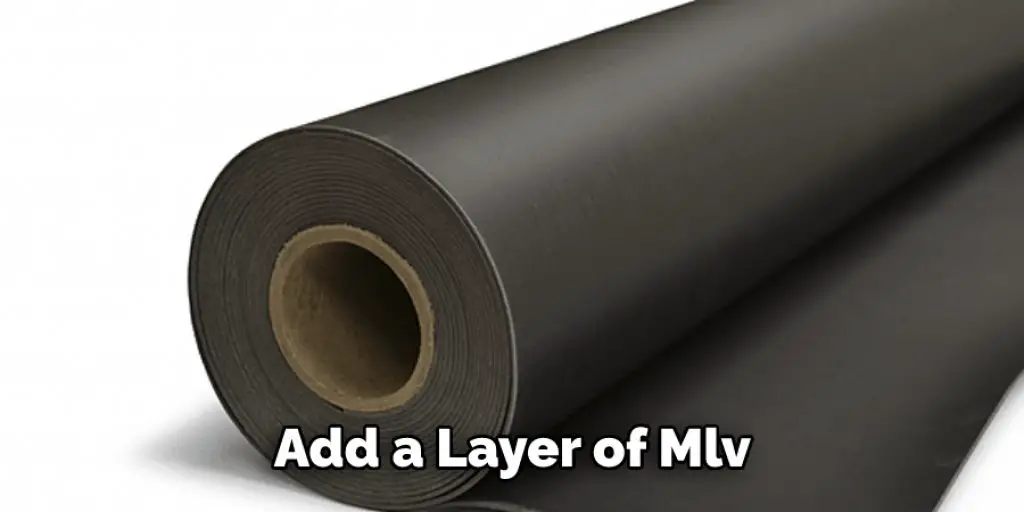How to Soundproof Thin Apartment Walls
Introduction
Soundproofing is a way of reducing the reverberated sounds that can carry throughout an apartment complex. Although it cannot eliminate all sound, mainly when you are in a room with one thin wall, Soundproofing will help to reduce the problem significantly. To contain noise from entering your apartment, soundproof walls will block out exterior noises from neighboring rooms or hallways through building materials or insulation. All buildings have some form of noise pollution, depending on their location and proximity to other facilities and exterior traffic. However, if you want to keep the noise down in your residence or have a well-insulated space for recording music, then here are some ways you can stop outside noises from getting into your home. In this article, I will discuss how to soundproof thin apartment walls. So let’s get started.

A Detailed Stepwsie Guide on How to Soundproof Thin Apartment Walls
1. Stucco Apartments
If the apartment is constructed with stucco, you can add a sheet of drywall to each side of the wall. This may be necessary for every stud space because the sound will travel right through the cavity and into your neighbor’s fence if this option is not done correctly. You will need to staple a layer of fiberglass insulation between the two drywall sheets before applying joint compound and tape and texture.
2. Insulate the Walls
Many thin walls do not require any insulation to cut down on noise; however, we recommend having an insulation contractor insulate your walls with either fiberglass or rock wool batts (3/8″ thick). Fiberglass has an R-value of 1 per inch. It is recommended for stud spaces 12″ or greater. Rock wool has an R-value of 3.2 per inch and is recommended for stud spaces from 8″ to 12″.
Sound waves travel through the air, but they also pass quickly through any insulation unless you add a barrier of Mass Loaded Vinyl behind it. To stop sound from passing through these thin walls, we recommend adding a layer of Mass Loaded Vinyl (MLV) between the wall studs.
3. Add a Layer of Mlv
Soundproofing a thin apartment can be done with a product called Mass Loaded Vinyl. We recommend that you use two layers of 1/8″ MLV on each side of the wall, as well as two layers of 1/4″ MLV on each side of the wall. To install your first layer of MLV, staple it to the studs using a powder-actuated tool, and make sure it is as tight as possible to avoid slipping layer. The second can be applied with either adhesive or tapcons (screws driven into the stud space). We highly recommend installing a system called Shadow Clips to hold your second layer in place securely. Once both layers have been installed, you should attach a 10 lb weighted batting layer between them for added soundproofing performance.

4. Install Stucco
To finish off the installation of the soundproofing elements, you will want to install 1/4″ drywall on the wall. First you will want to tape and texture the joints, then staple fiberglass insulation between them for added Soundproofing. After that, you can install your second layer of thin 10lb weighted batting. The last step is to prepare for your stucco installation by applying stucco netting along with a light coat of acoustic sealant to minimize any air leaks outside of the wall.
5. Add Your Stucco Flashing
Once all layers have been properly installed, it’s time to add the flashing over the top of everything. A good rule of thumb for this is: “The thicker, the better.” If possible, recommend using 3/8″ galvanized steel, as this will be your best option.
6. Finish with Stucco
Your last step is to apply the stucco according to local building codes and seal all joints with acoustic sealant. You can now paint or texture over the finished wall to give it a clean look with insulation and Soundproofing built right in.
Precautions While Soundproofing Thin Apartment Walls
1. Soundproofing thin apartment walls may give your place a completely different look and feel if you’re not careful.
2. Make sure you understand the components of Soundproofing before attempting to do so, especially when it comes to sound isolation strategies such as decoupling and dampening materials.

3. The best strategy is to listen carefully for any sounds coming from nearby neighbors who share walls with you while doing the necessary work for soundproofing your apartment walls or ceilings. If any sounds could affect the work that needs to be done, stop this project until another time when those sounds aren’t present.
4. Decide where noise is coming from and how it can be stopped, silenced, or even blocked out.
5. If you’re planning on soundproofing a large area of the apartment walls, ceiling, and floor, determine your budget before buying all the necessary supplies.
6. The outcome should be a better-isolated space where sounds from outside or other units in an apartment building won’t be heard by those occupying it.
7. In apartments, noise isolation strategies need to be implemented, and furniture and items, such as TVs and entertainment centers can affect how much noise from within the flat gets out into other units.
8. Decide if you want to buy professional materials or do-it-yourself materials for soundproofing thin apartment walls.

Which Materials Are used for Soundproofing?
Option A: You can use standard pine paneling to soundproof your thin apartment walls. The most important thing is to pick a material that’s easy to paint and will absorb enough sound waves. Option B: Vinyl record albums address the problem in a slightly different way. Please take all the records out of their covers and press them onto sheets of plywood or masonite with wallpaper adhesive or tile mastic for a durable bond. If you use vinyl, make sure it’s relatively flat, so there are few gaps between each album cover, which would defeat the purpose since sound beams could still travel straight through from room to room.
Recommendation: This method is complicated but effective if done right by an expert. The DIYer could easily mess it up and waste a lot of money or time. The installer must make sure to press the albums onto the plywood from all four sides, so there are no gaps.
Frequently Asked Questions
Can You Soundproof an Apartment Wall?
It depends on the type of wall and the materials that are used. In general, though, you may need to use more than one method in order to achieve optimum results. For example, you may need to install foam insulation or install acoustic panels along the exterior of your building. Additionally, you might want to seal any cracks or seams with caulking or joint compound before installing acoustic panels.
Is It Normal to Hear Footsteps Upstairs?
While there is no right or wrong answer, it may be worth considering the possibility that something paranormal is happening. Whether you believe in ghosts or not, it’s always best to take precautions when dealing with anything strange.
Try installing an audio surveillance system in your home if you think that someone or something is causing the footsteps. You can also set up some perimeter alarm lights to ward off intruders. If these measures do not work and you still feel uneasy about being alone in your home at night, consider consulting a professional ghost hunter who can investigate the situation further for free.
Does Sound Travel Up or Down in an Apartment?
Sound travels upward in an apartment because sound waves travel through the air more easily than they do through walls or ceilings. This is why you can often hear people talking and music playing from down the hall, even if their apartments are on different floors. Similarly, noise from outside tends to be louder inside an apartment due to resonance.
Is It Better to Live Upstairs or Downstairs in an Apartment?
Depends on a lot of factors, including your personal preferences and budget. That being said, some general tips that may help include:
1. Living upstairs in an apartment may be more expensive than living downstairs, but it can offer a number of advantages, including more privacy and convenience.
2. It may be harder to get parking space if you live upstairs, but this can usually be resolved by looking into communal car parks or garages.
3. If you’re a light sleeper or have claustrophobia, it may be better to live downstairs in an apartment.
Conclusion
I hope you have obtained a clear conception of how to soundproof thin apartment walls. Ensure all the precautions. Thank you and have a nice day!
You may check it out: How to Secure Apartment Door








